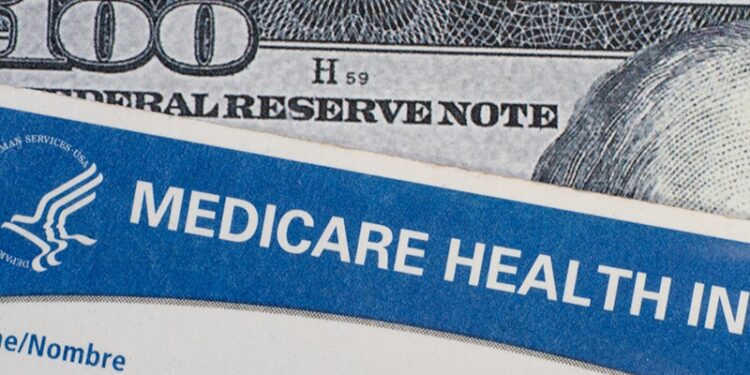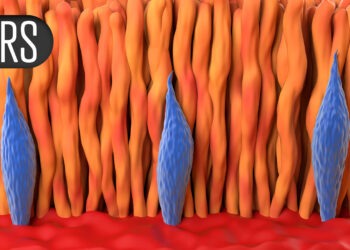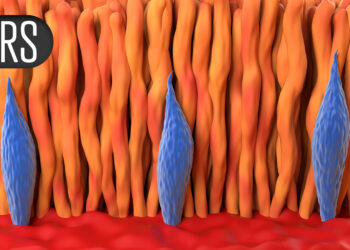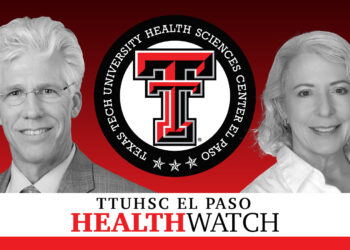Medicare payments to physicians for common gastrointestinal procedures have declined in recent years, while reimbursement to ambulatory surgical centers and hospital outpatient departments has increased or held steady, according to a new analysis.
These trends may exacerbate concerns that current federal payment policies are favoring consolidation in healthcare, while putting more financial pressure on clinicians in small and individual practices.

In a recent American Journal of Gastroenterology paper, Dipen Patel, MD, of Northwestern Memorial Hospital, Chicago, and coauthors analyzed trends in Medicare reimbursement from 2018 to 2023 for colonoscopy and esophagogastroduodenoscopy (EGD) procedures. They compared changes in Medicare’s physician compensation to changes in facility reimbursements for the same procedures. The results of their analysis are summarized below.
Physician Fee Schedule (Adjusted for Inflation):
- Colonoscopy: Reimbursement dropped 22.6%. Nominal (unadjusted): 6.12% decline.
- EGD: Reimbursement dropped 22.7%. Nominal: 6.2% decline.
Ambulatory Surgical Centers (Adjusted for Inflation):
- Colonoscopy: Reimbursement changed slightly (0.27% increase). Nominal (unadjusted): 21.7% increase.
- EGD: Reimbursement rose 6.23%. Nominal: 28.9% increase.
Hospital Outpatient Departments (Adjusted for Inflation):
- Colonoscopy: Reimbursement changed slightly (0.65% decrease). Nominal (unadjusted): 20.6% increase.
- EGD: Reimbursement changed slightly (0.82% increase). Nominal: 22.3% increase.
The researchers examined 31 current procedural terminology codes for colonoscopy and 26 for EGD procedures.
Patel, who graduated from the University of Texas Medical Branch School of Medicine, Galveston, Texas, in 2019, said part of the motivation behind the study was to raise awareness among younger physicians who may not track Medicare policy closely.
“For my generation of physicians who are coming out of training, we don’t really know much about these trends,” Patel told Medscape Medical News. “We don’t really know what the policies are or how they are playing out.”
Other recent studies have identified similar patterns — where professional fees have declined while facility reimbursement either rose or declined to a lesser degree for common orthopedic procedures such as shoulder surgeries and knee and hip arthroplasty.
Policy Ripple Effects
Patel and coauthors noted that Medicare has significant influence over US healthcare. It’s the largest purchaser of healthcare services, with total annual spending exceeding $1 trillion. Commercial insurers also factor in Medicare’s payment rates while setting their own reimbursement for services.
The American Medical Association (AMA) has linked physician fee schedule cuts to a shift away from independent practice ownership. In May, the AMA released results from its biennial Physician Practice Benchmark Survey (administered with WebMD/Medscape). Among the findings:
- An estimated 58% of physicians worked as employees in 2024, up from 42% in 2012, the survey’s first year.
Push for Inflation-based Updates
Members of both parties of Congress have backed proposals to create automatic updates in the base rate for the Medicare physician fee schedule to reflect rising costs. For example, more than 170 members of the House supported a 2023 bipartisan bill that would have created automatic annual updates for the base rate of the physician fee schedule to keep up with inflation.
The bill sought increases that would fully reflect the Medicare Economic Index (MEI), a measure used to estimate changes in costs for clinicians in practice. That bill stalled when the 119th session of Congress began in January.
A Republican-led budget package contains a similar ─ but more limited ─ proposal. It would increase the Medicare physician fee schedule’s base rate, but by less than the full expected gain in inflation.
The House-passed version of this bill would create an initial annual bump equal to 75% of the expected MEI change, with subsequent annual increases would be 10% of that index.
The Senate will work this month on the budget package, known as a reconciliation bill, likely making changes to the House-passed measure.
In a May letter to top House officials. AMA described the House’s MEI proposal as “a foundational step toward comprehensive Medicare physician payment reform in the 119th Congress,” meaning the current session which ends in January 2027.
Consolidations and Consequences
Gary Young, PhD, director of the Northeastern University Center for Health Policy and Healthcare Research, told Medscape Medical News that debates about consolidation in healthcare have persisted for decades.
“As far back as the 1970s, some people advocated for uniting hospitals and physician practices, seeing this as a way to reduce fragmentation and create more efficient care,” said Young, who has studied both Medicare’s variation in pay for services and the effect on patients of hospital acquisition of practices.
“There are people who say they never really understood why hospitals and physicians were separate to begin with,” Young said. “Others really lament the idea that the independent physician sector may go away. They ask: ‘Do we really want all of our physicians to be under the control of healthcare systems and corporate entities?’”
Young also noted that in many cases, physicians initiate buyout discussions with healthcare systems due to financial pressures.
“Many physician practices are struggling, and they approach hospitals sort of as a white knight,” he said.
The American Hospital Association (AHA) has made a similar argument, telling lawmakers that its members have offered “a lifeline” to struggling physician practices ─ especially in rural areas.
Last year, the AHA submitted ideas for aiding physicians to the health panel of the Ways and Means Committee. The Ways and Means health committee held a May hearing titled “The Collapse of Private Practice: Examining the Challenges Facing Independent Medicine.”
The AHA recommended:
- Increasing physician reimbursement through the Medicare fee schedule
- Reducing insurer-imposed administrative burdens, such as prior authorization.
- Examining the growing role of commercial health conglomerates, in acquiring physician practices.
“While a disproportionate amount of attention has been placed on hospitals’ acquisition of physician practices, the reality is that large commercial insurers including CVS Health and UnitedHealth Group have recently spent billions of dollars to acquire physician practices,” AHA said in its statement.
Patel and coauthors have disclosed no relevant financial relationships.
Kerry Dooley Young is a freelance journalist based in Washington, DC. She has covered medical research and healthcare policy for more than 20 years.
Source link : https://www.medscape.com/viewarticle/medicare-physician-gastrointestinal-procedure-pay-fell-2025a1000fav?src=rss
Author :
Publish date : 2025-06-06 12:21:00
Copyright for syndicated content belongs to the linked Source.














